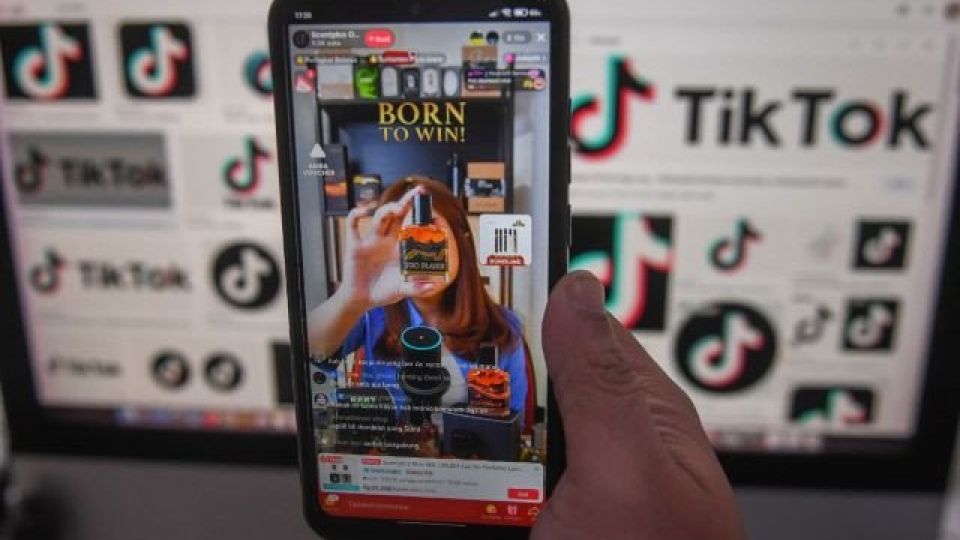October 6, 2023
JAKARTA – Chinese super app TikTok will no longer process transactions through TikTok Shop starting Wednesday afternoon, after widespread public accusations that the feature negatively impacts local businesses.
“Our priority is to remain compliant with local laws and regulations. As such, we will no longer facilitate e-commerce transactions in TikTok Shop Indonesia by 5 p.m. Oct. 4 and will continue to cooperate with the relevant authorities on the path forward,” a representative of the platform, owned by Beijing-based ByteDance, said in a statement issued on Tuesday.
Asked whether that meant that TikTok Shop would shut down altogether, TikTok Indonesia head of communications Anggini Setiawan told The Jakarta Post that the company would no longer offer “transactions” but did not elaborate.
According to experts, the restriction of the feature, which had grown quickly in popularity in Indonesia, could impact micro, small and medium enterprises (MSMEs) and business digitalization.
Trade Minister Zulkifli Hasan had previously informed media outlets that TikTok had one week to “close TikTok Shop” after the regulation was made public on Sept. 26, 2023.
“As of yesterday, it’s prohibited [to sell items on TikTok], but we’re giving one week [to inform the public]. Tomorrow, I’ll send a warning letter,” he told reporters on Sept. 27, adding that social media with commercial aspects was outlawed and that social media could still market products but not sell them.
The move is based on Trade Ministry Regulation No. 31 of 2023, which, according to the government, levels the playing field for offline and online merchants.
Read also: High-flying TikTok Shop rattles e-commerce
Kenneth Ponggawa, a senior analyst at consulting firm BowerGroupAsia Indonesia, said the decision represented the government’s first major regulatory intervention against a single business in the digital sector.“It signals a dwindling appetite for disruption – formerly a buzzword endorsed by officials. Ventures related to areas of government concern, such as micro, small and medium enterprises, may more readily attract stringent regulation, regardless of the impacts on other priorities, like attracting foreign direct investment [FDI],” Kenneth said.
“The decision also highlights the government’s readiness to align with the aspirations of more established players,” he added, explaining that this could make tech companies hesitant to release fresh products in the country.
He also said that the move would favor established traditional e-commerce platforms in Indonesia and could be seen as a political win ahead of next year’s elections for high-level officials appearing as protectors of small businesses against a flood of cheap imported goods.
Kenneth said that whether TikTok Shop put traditional retailers at a disadvantage was debatable, noting that many MSMEs that had grown through the social commerce platform were now facing disadvantages.
“While the ban may benefit some small business owners, it’s inevitably going to disadvantage others. The impact of this policy on MSMEs will be anything but uniform,” he said.
Read also: Social commerce projected to contribute $42b in Southeast Asia’s online sales: study
An associate at law firm Robin and Sulaiman, Giovanni Christy, told the Post on Tuesday that the measure was good in the short term for small businesses hurt by the success of TikTok Shop, but it could see Indonesia fall behind other countries in technological progress through digitalization over the long term.
She noted that not everyone in Indonesia had the technological wherewithal to take advantage of digital technology, which would be a disadvantage for traditional vendors. According to a report from CNBC Indonesia earlier this year, Indonesia has the lowest rate of digital literacy in ASEAN at 62 percent, a far cry from South Korea’s 97 percent.
“The government should be expected to […] empower underprivileged MSMEs through technology transfer at entrepreneurship colleges and other institutions; and in my opinion, if [those MSMEs] are given a platform to compete, they don’t have to do livestreaming,” Giovanni added, referring to a key feature of TikTok Shop.
Lydia Susanti, cofounder of live-shopping facilitator Social Bread, which relied heavily on TikTok Shop to deliver its services, told the Post last month that, should TikTok Shop be barred from Indonesia, the start-up would look for alternative marketplaces to help vendors continue their sales.
“Saying that live shopping will completely disappear may be putting it a bit harshly,” Lydia said, noting that, after a long day of work, people would always opt to shop through social commerce with intriguing content.
She admitted there were also those who preferred conventional stores and noted that competition existed even in the online market.
“Even with TikTok, if the sellers don’t maintain their branding, if they have no engaging content, nobody will be interested in buying their products,” she said.


